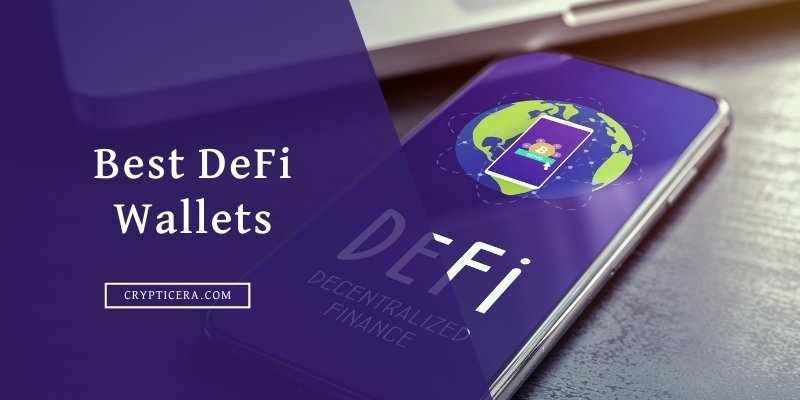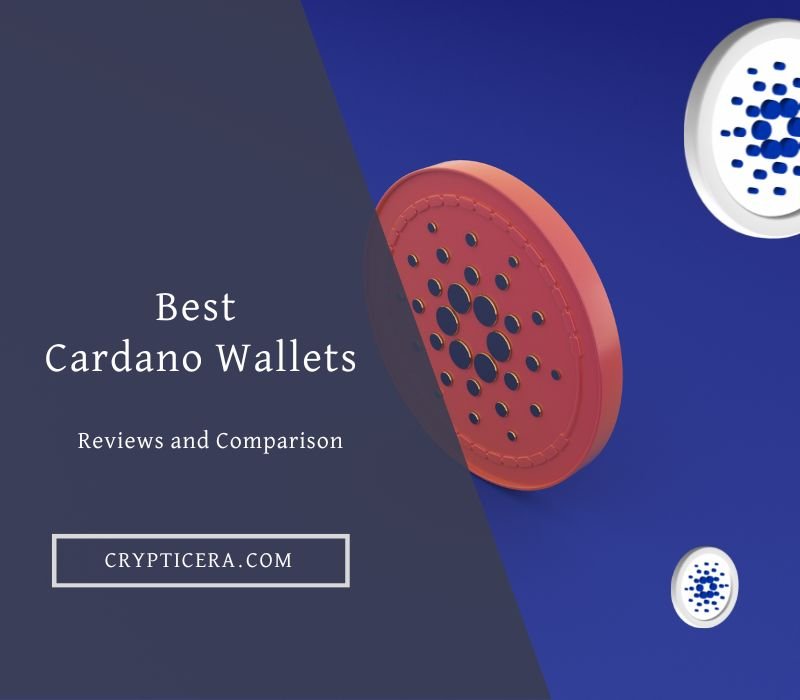Decentralized Finance, commonly known as DeFi, has grown exponentially in recent years, attracting millions of users worldwide. DeFi has created a new paradigm in the financial world by offering permissionless and trustless financial services to anyone with an internet connection.
DeFi protocols allow users to earn passive income, trade assets, lend and borrow, and more, all without intermediaries. One of the most important components of DeFi is the wallet, where you store and manage your crypto assets and interact with DApps. In this article, we’ll take a look at the 8 best DeFi wallets in the market today.
What is a DeFi Wallet?
A DeFi wallet is a digital wallet that enables users to store, send, receive and manage their crypto assets securely. A wallet allows users to interact with DeFi protocols and access Decentralized Finance services.
The wallet comes in different forms, including hardware wallets, software wallets, and web-based wallets. They are non-custodial, which means that the user has full control over their private keys and assets.
Criteria for Selecting a DeFi Wallet
When selecting a DeFi wallet, several factors should be considered. These factors include security, user experience, supported assets, ease of use, and availability.
Here are some essential criteria for selecting a DeFi wallet:
- Security: The DeFi wallet should have robust security features, including two-factor authentication, multi-signature support, and cold storage options.
- User Experience: The wallet should have a user-friendly interface that is easy to use and navigate.
- Supported Assets: It should support a wide range of cryptocurrencies and tokens.
- Ease of Use: It should be easy to set up and use, even for beginners.
- Availability: The wallet should be available on multiple platforms, including web, desktop, and mobile.
➤ Read: CeFi vs DeFi
Comparison between Best DeFi Wallets
| Wallet | Number of Coins | Supported DApps | Built-in Swap |
|---|---|---|---|
| Metamask | 3500+ | Uniswap, Sushiswap, Aave, Compound, MakerDAO, Yearn.Finance, Curve Finance, Balancer, and many more | Yes |
| Ledger | 1500+ | Uniswap, PancakeSwap, Compound, Aave, etc. | Yes |
| SafePal | 10,000+ | PancakeSwap, BakerySwap, Venus, Cream, Raydium, Serum, Solana, and many more | Yes |
| Trust Wallet | 10,000+ | Uniswap, Polkadot, Kusama, and many more | Yes |
| Atomic Wallet | 500+ | Uniswap, Sushiswap, Cosmos, and many more | Yes |
| Exodus | 280+ | Uniswap, Compound, MakerDAO, Yearn.Finance, etc. | Yes |
| MyEtherWallet | 3500+ | all ERC-20 | No |
| ZenGo | 100+ | Uniswap, Curve Finance, Balancer, and many more | Yes |
We Recommend: Best Software Wallets
Choose Security over Convenience

Best 3FA Non-custodial wallet
- No seed phrase vulnerability, powered by MPC
- A guaranteed wallet recovery model
- Built-in
Web3 firewall

Best Custodial wallet (100% Solvent)
- 800+ coins and tokens
- Copy trading and bots
- Automatic Trading Strategies
- Staking APY up to 130%
Best Decentralized Finance Wallets Reviewed
Here are the 8 best DeFi wallets that meet the criteria mentioned above:
1. MetaMask
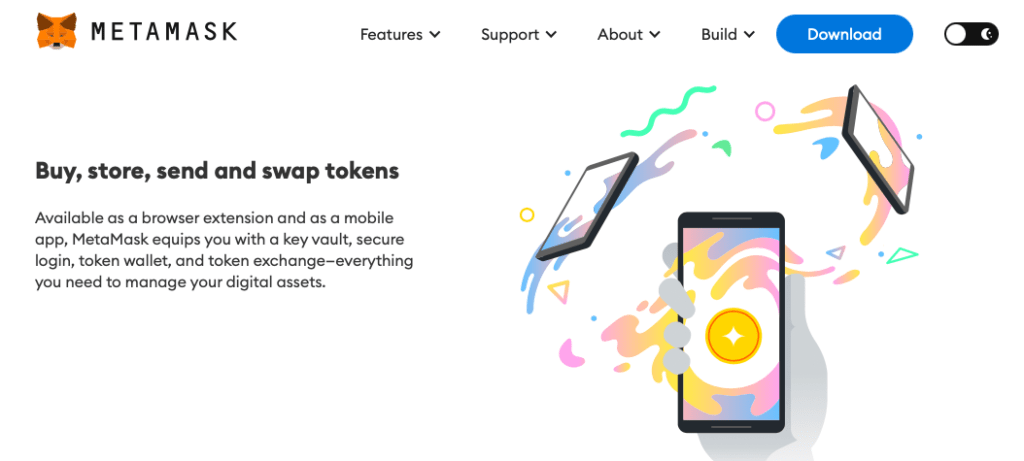
MetaMask is a popular DeFi wallet that allows users to interact with Ethereum-based DeFi protocols. It is available as a browser extension and a mobile app.
MetaMask supports multiple Ethereum networks, including the Ethereum mainnet, Ropsten, Kovan, Rinkeby, and Goerli. MetaMask also supports ERC-20 tokens, allowing users to store and manage their token holdings.
It acts as a bridge between a user’s web browser and the Ethereum blockchain, enabling them to securely store, send, receive, and manage their Ether (ETH) and ERC20 tokens.
With Metamask, you can also customize transaction fees, manage multiple Ethereum accounts, and sign transactions to interact with smart contracts. You can participate in decentralized finance (DeFi) protocols, NFT marketplaces, and other blockchain applications.
➤ Related: Best Hardware Wallets For Metamask
2. Ledger Live
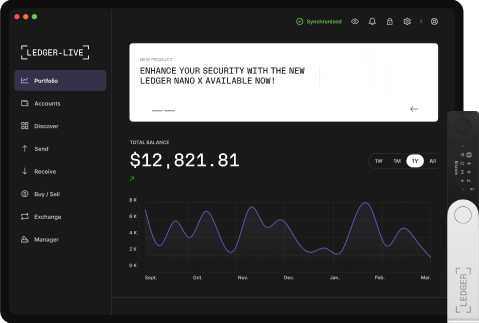
Ledger is a hardware DeFi wallet that supports multiple cryptocurrencies, including Bitcoin, Ethereum, and more. It offers robust security features, including two-factor authentication and a secure element chip that stores private keys.
Ledger allows users to manage their assets and interact with DeFi protocols through its integrated DeFi platform.
The Cold Wallet is compatible with major operating systems such as Windows, macOS, Linux, Android, and iOS. It can also be used in conjunction with popular cryptocurrency wallets like Ledger Live and third-party decentralized applications.
3. Safepal (Software + Hardware Wallet)
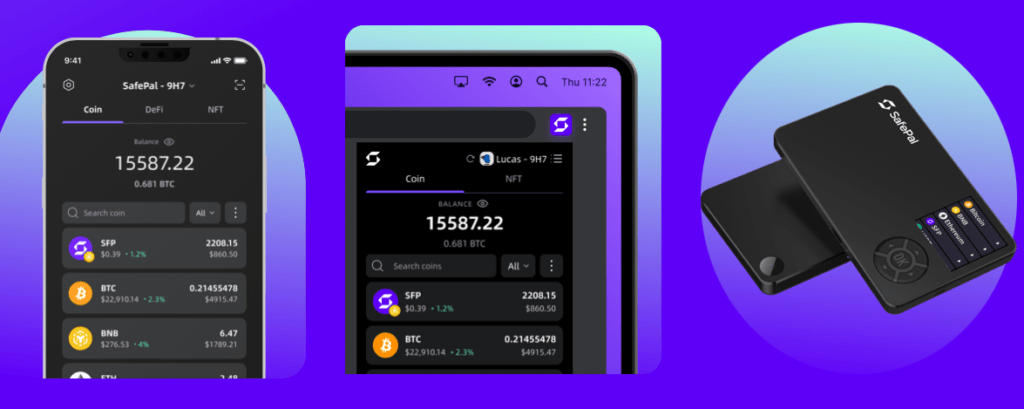
SafePal is a digital wallet that offers both software and hardware options for securely storing and managing digital assets. It features robust security measures, such as multi-layer encryption, seed phrase backup, and biometric authentication.
SafePal software wallet also supports integration with popular decentralized finance (DeFi) applications, allowing users to participate in various DeFi activities securely.
It also offers a hardware wallet called SafePal S1, which is a compact and portable device designed to securely store users’ private keys offline.
4. Trust Wallet
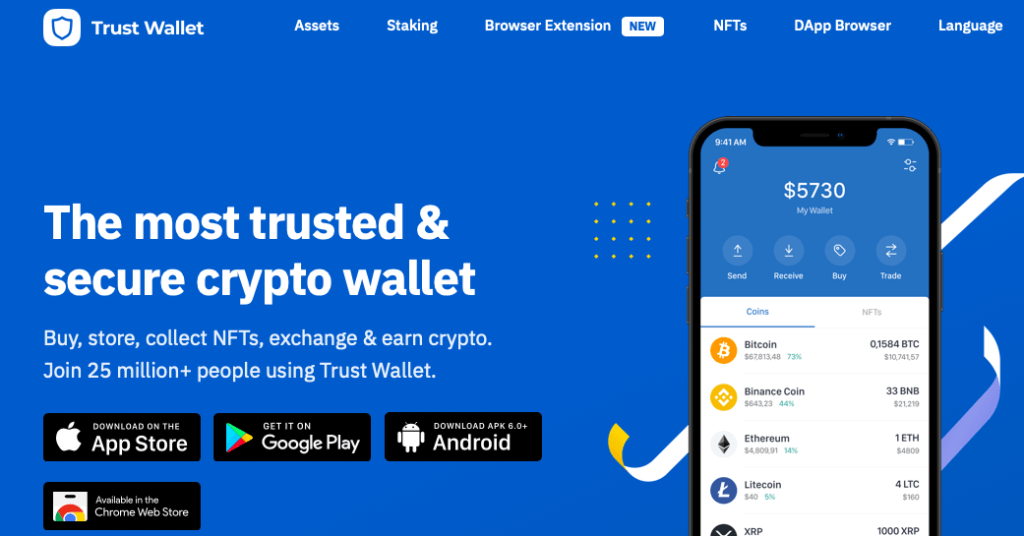
Trust Wallet is a mobile wallet that supports multiple cryptocurrencies and tokens, including ERC-20 tokens. It offers a user-friendly interface and high-security features, including biometric authentication and seed phrase backup.
It has built-in integration with popular decentralized exchanges (DEX). This allows users to trade cryptocurrencies directly from their wallets without needing to rely on a centralized exchange.
Trust Wallet supports Wallet Connect, which allows users to connect their wallets to decentralized applications (dApps) on different blockchains. This enables them to interact with various blockchain-based services like lending, borrowing, staking, Liquidity mining, and yield farming.
5. Atomic Wallet
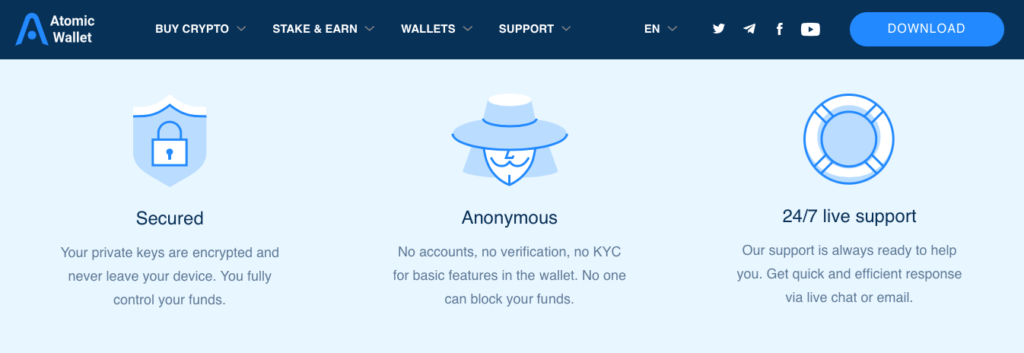
Atomic Wallet is a multi-currency wallet that supports over 500 cryptocurrencies and tokens, including ERC-20 tokens. It also allows users to buy crypto with a credit card and stake their assets to earn passive income.
It is a popular DeFi wallet that offers a user-friendly interface, multi-currency support, DApp browsing, security features, DEX integration, staking support, and easy backup and recovery options for managing cryptocurrencies and interacting with DeFi protocols.
It integrates with popular DEX platforms like PancakeSwap, Uniswap, and others, allowing users to swap and trade cryptocurrencies directly from the wallet.
6. Exodus Wallet
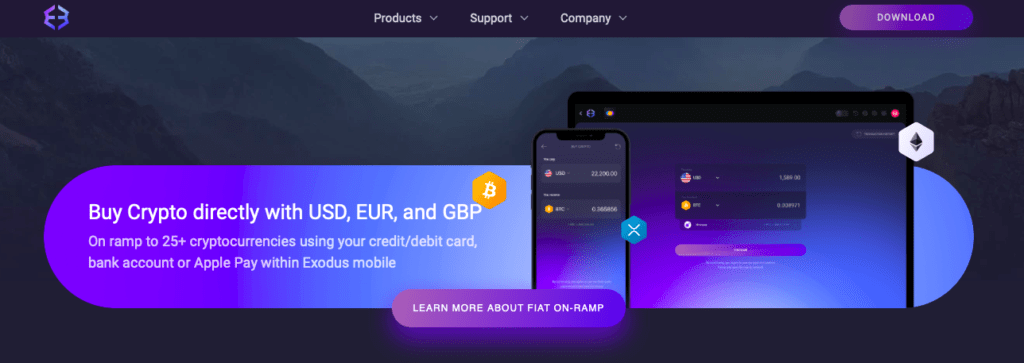
Exodus Wallet is a popular non-custodial cryptocurrency wallet that supports a wide range of digital assets, including popular decentralized finance (DeFi) tokens.
The Wallet supports a wide variety of digital assets, including popular DeFi tokens such as Ethereum (ETH), Binance Coin (BNB), Uniswap (UNI), Aave (AAVE), and more. This makes it convenient for users who want to interact with different DeFi protocols and tokens.
It comes with a built-in exchange that allows users to swap cryptocurrencies directly within the wallet. Exodus Wallet is available as both a mobile app for iOS and Android devices, as well as a desktop application for Windows, macOS, and Linux.
7. MyEtherWallet
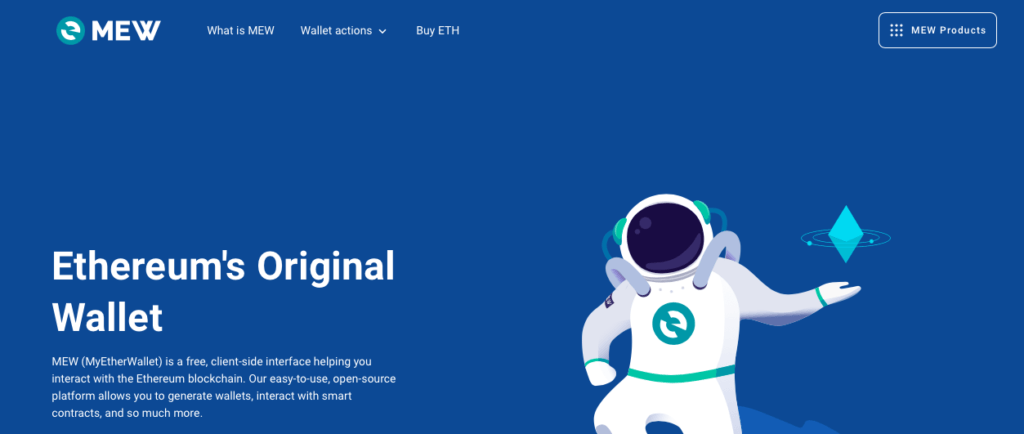
It is a free, client-side, open-source wallet, which means that all transactions occur on the user’s device and MEW does not have access to private keys or personal information.
MEW allows users to create and manage multiple Ethereum wallets, send and receive Ether (ETH) and ERC20 tokens, and interact with various DeFi protocols and decentralized applications (dApps).
It also supports multiple languages and has a robust ecosystem of third-party integrations, including decentralized exchanges (DEXs) for trading, lending, and borrowing platforms, and other DeFi services.
8. ZenGo Wallet
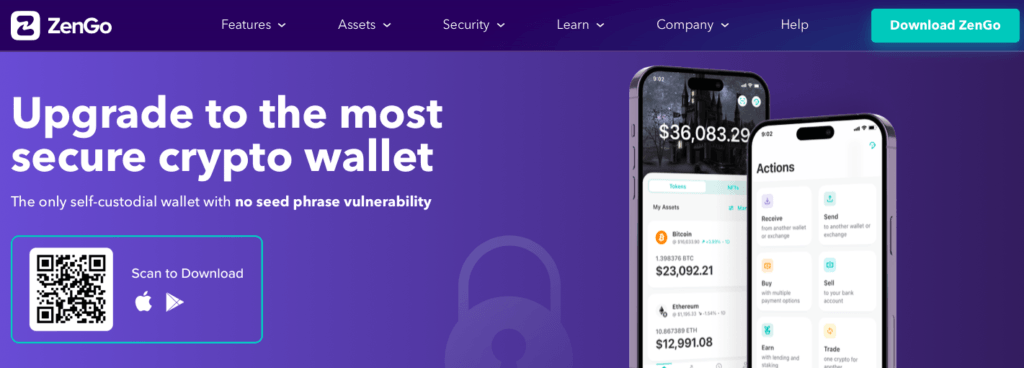
ZenGo is a decentralized finance (DeFi) wallet that offers enhanced security features. It utilizes a unique form of multi-party computation (MPC) technology to provide three-factor authentication (3FA), eliminating the need for a seed phrase. This reduces the vulnerability associated with seed phrases, which can be lost or compromised.
These three factors typically include something the user knows (e.g., a password), something the user has (e.g., a cloud server backup), and something the user is (e.g., biometric data like fingerprint or face recognition).
With its innovative approach to security, ZenGo aims to provide a user-friendly and secure wallet solution for managing DeFi assets.
➤ Read DeFi Platform Comparison: Aave Vs Compound Vs Maker
Features of a DeFi Wallet
A DeFi wallet comes with various features, including:
Asset Management
A DeFi wallet allows you to manage your decentralized assets, including cryptocurrencies, tokens, and NFTs. You can view your assets, check their value, and transfer them to other wallets or DeFi applications.
Security
The DeFi wallet provides secure storage of your assets, protecting them from hacking, phishing, or theft. You can use different security measures, such as two-factor authentication, biometric authentication, or PIN code.
Compatibility
The wallet is compatible with various DeFi applications, allowing you to access different services, including lending, borrowing, trading, and staking.
User Interface
A DeFi wallet comes with a user-friendly interface, making it easy to use and navigate. You can manage your assets, view your transactions, and access different DeFi applications with just a few clicks.
Pros and Cons of Using DeFi Wallets
| Pros | Cons |
|---|---|
| Decentralized control. | High risk of hacks and scams. |
| Better privacy. | Complex user experience. |
| Accessibility for underserved populations. | Lack of regulation. |
| Interoperability with DeFi protocols and dApps. | Irreversible transactions. |
| Potential to earn passive income. | Exposure to market volatility. |
How Do I Set Up a DeFi Wallet and Store My Cryptocurrencies?
Setting up a DeFi wallet typically involves the following steps:
- Choose a Wallet: Select a DeFi wallet that meets your requirements based on the features mentioned above.
- Download and Install: Follow the instructions provided by the wallet provider to download and install the wallet application on your device, such as a desktop computer, smartphone, or hardware device.
- Create a Wallet: Create a new wallet within the application and securely store your private keys. Make sure to follow best practices for creating a strong and unique password, and consider using a hardware wallet for added security.
- Back-Up Your Wallet: Most DeFi wallets will provide you with a seed phrase or private key that you need to back up in a secure location. This seed phrase or private key is essential for restoring your wallet and accessing your cryptocurrencies in case of loss or device failure.
- Fund Your Wallet: Transfer cryptocurrencies from a reputable exchange or another wallet to your newly created DeFi wallet. Be sure to double-check the wallet address and follow best practices for securely transferring cryptocurrencies.
Final Thoughts: Which is better DeFi Wallet
With the right DeFi wallet, users can store, send, receive, and manage their crypto assets securely, as well as interact with the DeFi ecosystem and access various DeFi services.
We have explored some of the best Decentralized Finance wallets available including Metamask, Trust Wallet, and ZenGo, each with its unique features and benefits. When selecting a DeFi wallet, it is important to consider factors such as security, user experience, supported assets, ease of use, and availability.
